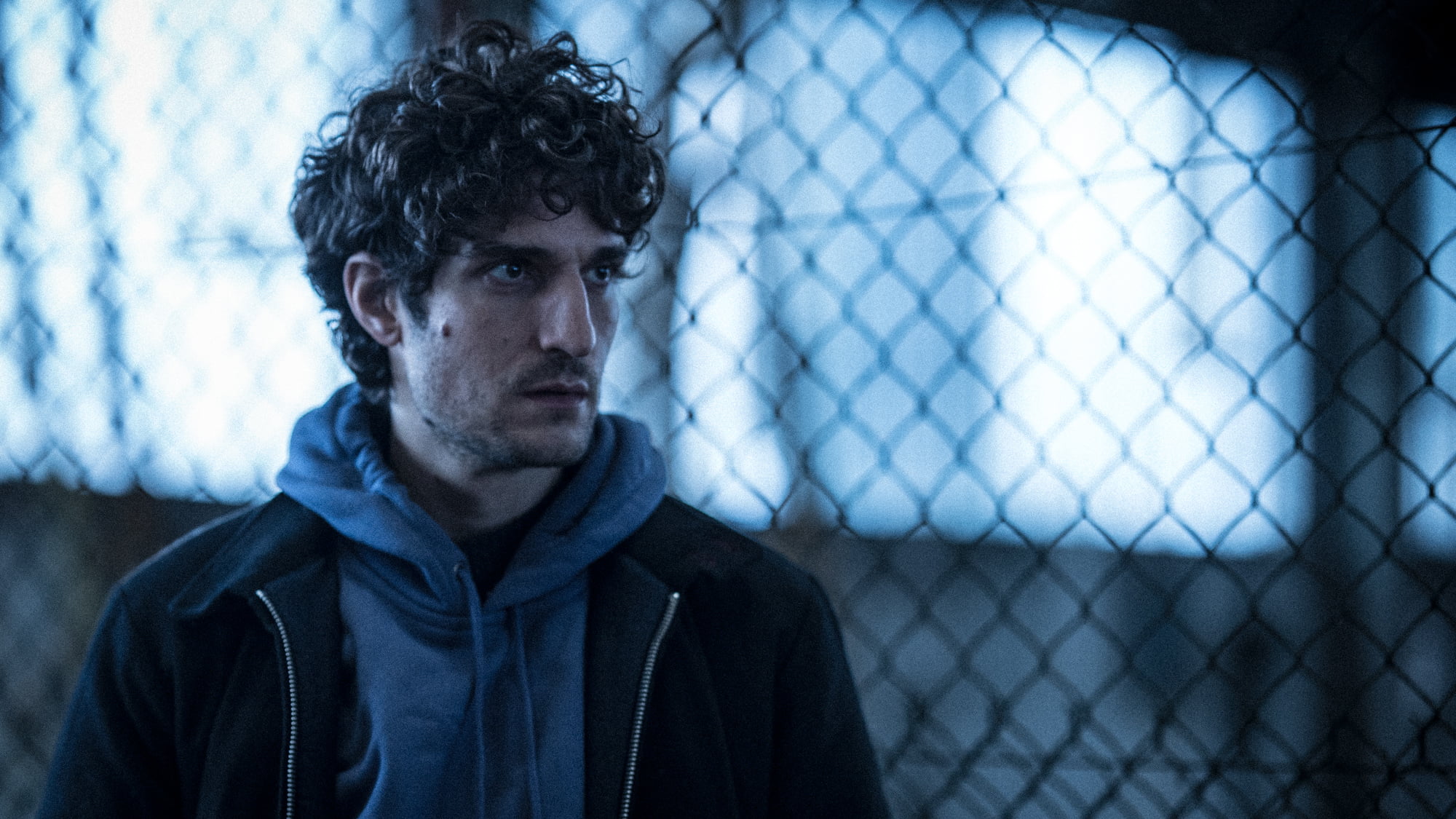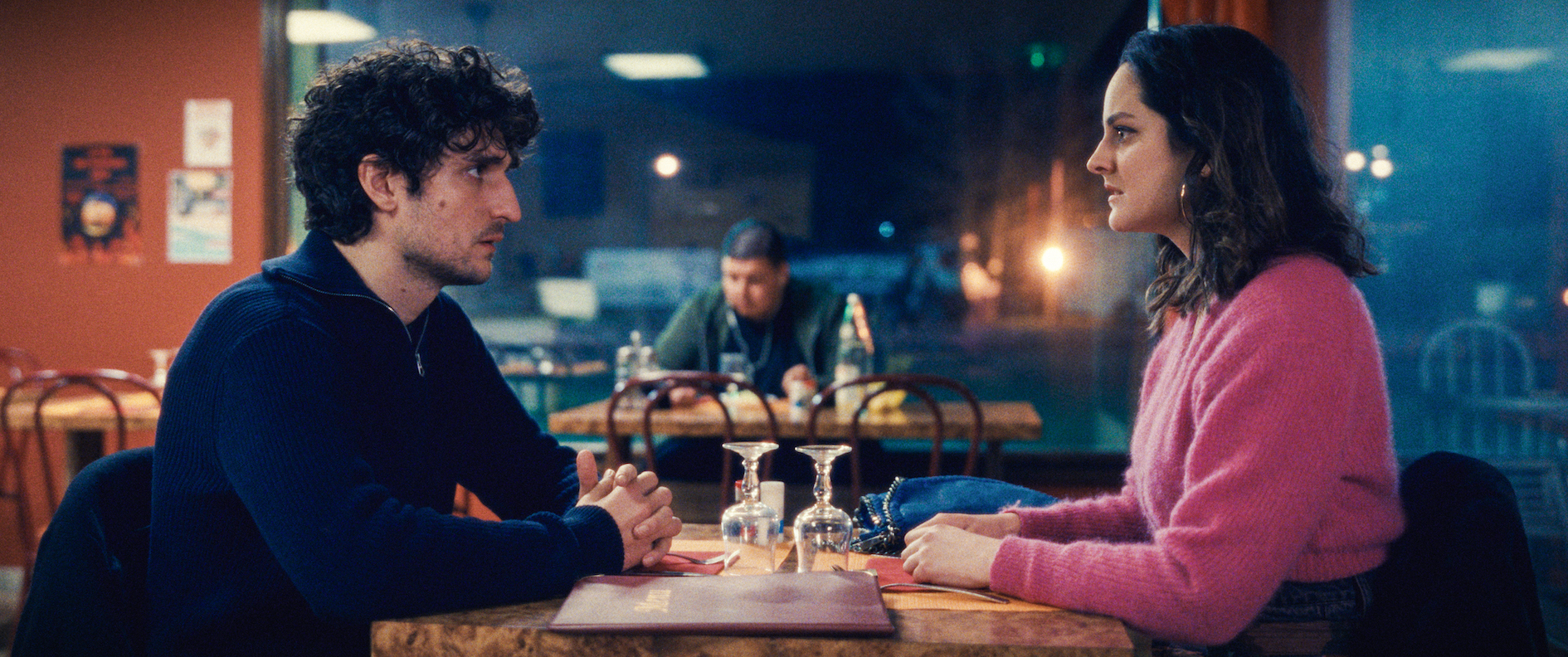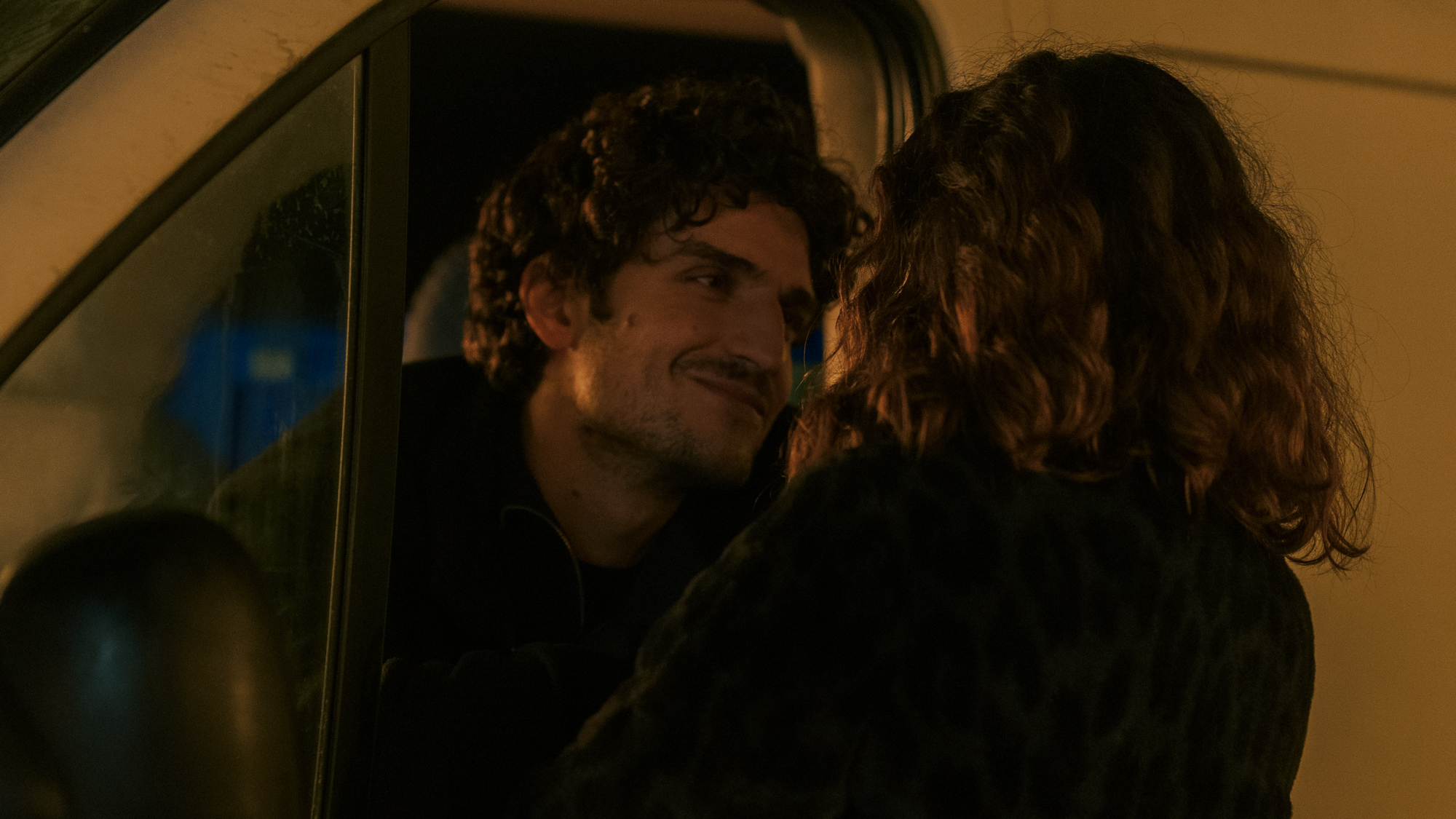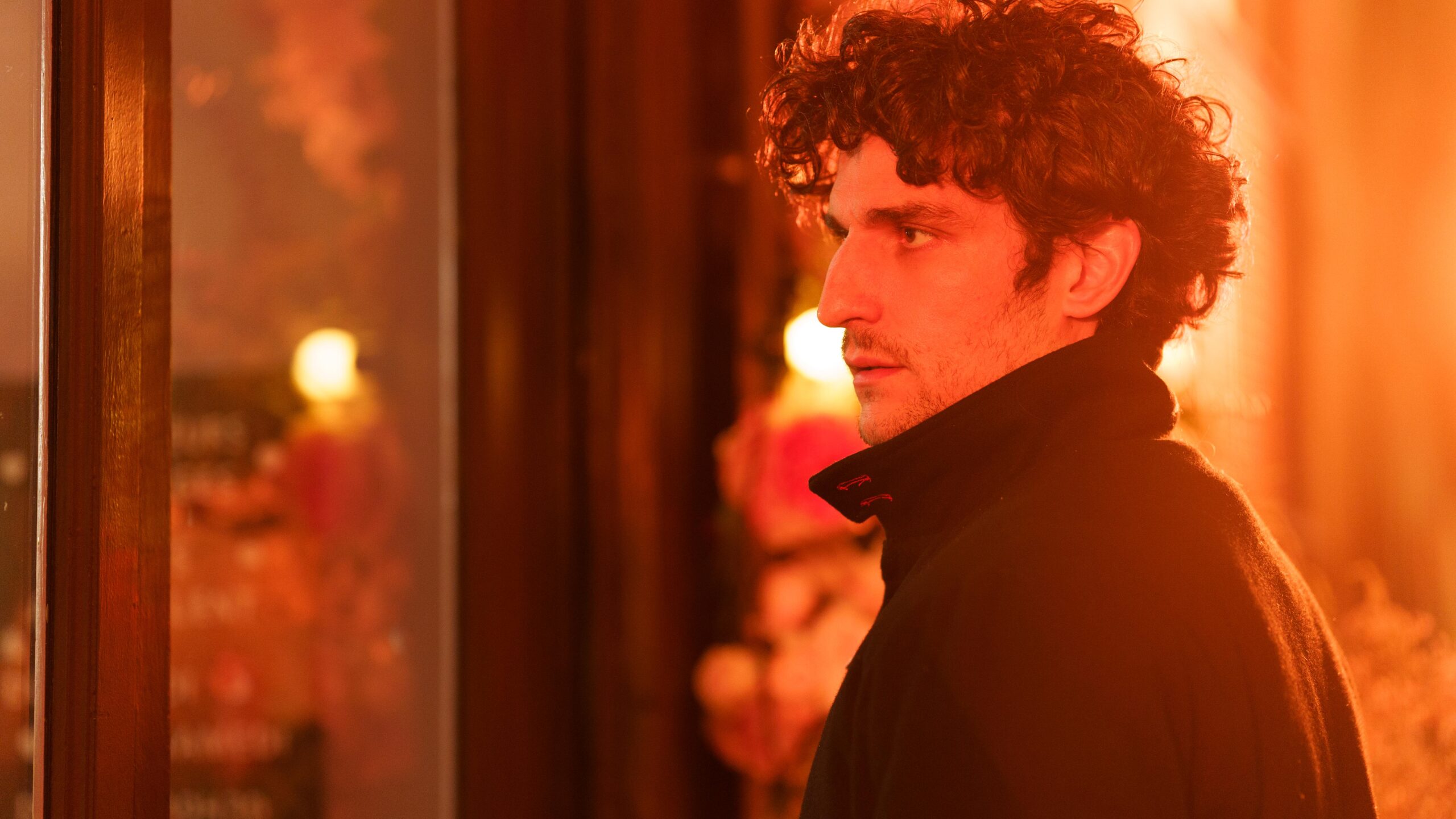
Louis Garrel – The Innocent
Louis Garrel’s new film The Innocent may appear, on its surface, to be just a rom-com-heist film. The kind of caper that makes you go ‘aw’ out loud and, occasionally, quirk an eyebrow at the hijinks that ensue. But it, like Garrel himself, has more beneath the surface. Ahead of the film’s debut, 1883 Magazine speaks to the writer-director-actor about putting his life on screen, wanting to be a detective when he was a teen, and the roles he’s keen to try.
The Innocent has both a sense of whimsy but also an intensity, like a pressure cooker. How do you balance both of those visceral themes?
I couldn’t describe it precisely because I didn’t know to what extent the ‘lightness part’ was going to be important in the movie. I was very tense during the film, [wanting] to push all the buttons of the level of emotions to have this kind of… not absurd, but this kind of burlesque humour.
If you push a little bit over the naturalism, then the burlesque [humour] appears. I was very much attached to having this kind of strange tone between tragedy and comedy. The characters, when I was writing, were super defined. I needed characters who existed without the presence of the actors. And because we had these full, strong characters, I think the actors got the possibility to do some great performances.
When you were writing Abel, how much of yourself did you see in him?
That was the only character that I was seeing with my face and my body. He’s not me, but there is a lot of commonality between him and me. I’m very anxious, and like him, I’m also trying to prevent a tragedy that could appear; that is also my anxiety, so I could see myself in the character, but for the other characters, I didn’t see [any actors’ faces].

Do you find it easier to tap into a character if it’s a character that you’ve written, versus a script that you’re getting?
No, it’s much more difficult when I’ve written the character. With Abel, it was the first time I was directing and playing a character who is transforming himself through the adventure of the film. Most of the time, the characters I write for me [to play] in a movie that I [also] directed are there to help the other characters.
Do you read reviews of your work?
With The Innocent, I was very interested in the reactions in the theatre during the screening. I read [reviews] and sometimes you get a little bit pissed off when you see a bad review. But there is a bad review that is a good review, and a bad review that is bad. Now, with a little bit of experience, I can also deal with my own critiques about the critics. And of course, we all need feedback. You need [writing] about films.
To what extent were you concerned with conveying humour knowing that there would also be some people reading subtitles?
Well, the movie was never a ‘comedy’. It has good [situational humour] sometimes. And then when you have these good situations, to go back to what I was saying in the beginning, when you push the level it becomes comic.
Maybe that one scene when I am in the car hiding. It was a stupid scene, and it needed a laugh and a specific rhythm. When I was writing the script, I needed the characters to be loved by the audience, because the story isn’t believable all the time. But because you love the character, you want to believe [in the story].

That scene I think speaks to Abel’s innocence though. It’s relatable because we’ve all done something like that in the course of our lives.
I was crazy about following people when I was a teenager.
Why is that?
I wanted to become a detective when I was a teenager. I really did. To see the private life of someone that you know. The obsession of seeing if a thing that they told you is the truth or not. I was obsessed by that.
There’s a line in your Wikipedia page that says “he usually plays similar characters such as men in the middle of love triangles”. Do you see yourself gravitating towards certain kinds of roles like that?
Now as an actor, not that much. The love triangle is very dramatic and very good for cinema… except if you’re Bergman, and you know exactly how to show the dissection of a couple. But if you’re not Bergman, it’s better to have a pair, and then a third person coming in to create a problem. In the beginning, I was performing and playing characters close to me, who could be me. But at the moment, I feel a little bored by this. I find it more entertaining playing characters who are not like me, where I have to change my hair, change my voice, because it’s more interesting.
Does that help you have some distance when watching yourself back?
There is a bigger pleasure to watch yourself in the movie. Sometimes I meet actors who never watch themselves in movies. It’s my pleasure to watch the movies I’ve been in, so this also helps me to watch the movies without being afraid of myself.
Athletes watch their games to learn.
Of course! And as an actor, I was never afraid of [looking at] myself. Maybe the first movie I played in when I was 17 years old because suddenly I discovered that my nose was not completely straight… but I always watch myself to see the errors or to see the things that I could do better.

Do you think about being recognisable as an actor when you approach a character?
The only thing is when people know you, because they’ve seen you already in many movies, you have to ask yourself ‘how can I make [a character] so the spectator will say ‘Okay, I believe that Louis is the king of France’,’ for example.
And not get distracted by ‘Oh, that’s Louis Garrel’.
Exactly. So that’s the major thought that I have before choosing a movie: Is the audience going to believe that I am the character I am proposing to be?
You said that there’s an element of an autobiographical in The Innocent. What made you want to use elements of your life in a film?
I think it’s good to mix your private life [into a film] because you have on your hands the story, and you know better than anyone how to tell that story. So in The Innocent, I could play with the subject without being afraid. It gave me the authority of ‘playing’. This is what I prefer to do when I make movies, to play.
Are there any characters that you are totally unfamiliar with that you’d be interested in playing?
A millionaire. The very, very rich. And a musical comedy. It’s always a dream, but I’m not quite prepared to make a musical comedy. And a political movie, like a political thriller — that is a genre I would love to try.
The Innocent is out now.
Interview Gabriella Geisinger





